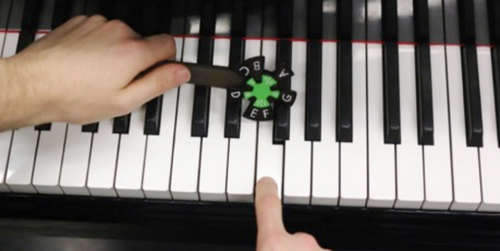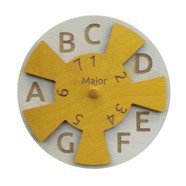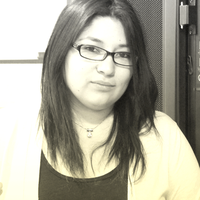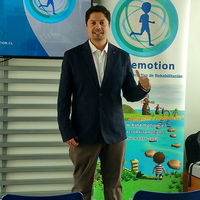When he was little, Perttu Pölönen dreamed of becoming a composer. But as with many beginners, learning the theory part of music was an obstacle that frustrated him every day. So, when he was 15, he decided that he was going to reinvent music to make it simpler. He had an idea: Why not put the twelve notes in a circle, as if they were the hours on a clock face, instead of on a stave? When he showed it to his friends "in just 15 minutes they understood concepts" that had taken him "years to comprehend", recalls this young Finn. That clock became the embryo of MusiClock, a collection of digital and physical tools that help teachers and students to teach and learn music at early ages, and which have made Pölönen one of the Innovators Under 35 Europe 2018 from MIT Technology Review.
MusiClock is made up of two parts: a circular plate on which the twelve notes of the dodecaphonic scale are shown and, on top of that, superimposed on a central axis, the scales disk. This disk is in the form of a cog, and its teeth hide the notes that do not belong to that scale and allow you to see the correct ones. There are different scales disks, each one a different shape and colour. By rotating the disk on the plate, the user can move the scale to start from another note. "It doesn’t only help to see the correct notes", explains Pölönen. "You can also see the connections between different musical elements and can build chords and intervals", he adds.

When students have familiarised themselves with the scales, Pölönen’s second invention comes into play: the Piano Wheel. This wheel is a kind of MusiClock attached to a handle that can roll over the keys of a piano, showing the ones that it is right to play for each scale. After learning the correct keys, the third aspect of the learning process is a mobile app (currently only available for iPhone) with which students can improvise on a series of backing tracks and create their own music. These tracks, composed by Pölönen, adjust to the chosen scales "so that the student’s melody sounds good from the outset, providing them with a positive experience", explains the young man.
Pölönen has adapted MusiClock for different instruments, adding to the clock information about how to move your fingers for each of them. For instance, if you play the flute, MusiClock will show you, at the same time, the correct notes for a certain scale and which buttons to press to produce them. And the same thing applies to the trumpet and to any instrument with "buttons". For string instruments and the trombone, it shows positions instead of buttons. Pölönen states that "as a cellist since the age of 4, I can say that a tool that reminds you of the fingerings and positions would have been very useful to me when I was learning my first scales".
 MusiClock has been spread to Finnish schools and Pölönen is currently developing pilots in Helsinki and Beijing to prove his tools and develop a learning methodology around them. He wants to focus on early years education (five to ten) and add "narrative" (animals, colours, stories) to the process.
MusiClock has been spread to Finnish schools and Pölönen is currently developing pilots in Helsinki and Beijing to prove his tools and develop a learning methodology around them. He wants to focus on early years education (five to ten) and add "narrative" (animals, colours, stories) to the process.
Being a simple system, questions arise around how he intends to protect his invention from copies or imitations. “It‘s always a risk," acknowledges Pölönen. "That’s why we are moving toward schools. Our goal is not only to sell products, but a service, designing a schooling and a path of learning. In this way we can create franchises and scale it to other places."
Next year they are going to open a piano school in Singapore where they will use musiclocks and his own method. If it works, more will be opened in China and other countries. Asia is his priority market: “In China alone there are more than 40 million children who play the piano in conservatories," says the young man. “I want to offer them, and the ascending middle class, a method that can create a positive impact for life in the development and growth of the child". 
For Pablo Silva, professor at the School of Music at the National Autonomous University of Mexico and a member of the jury of Innovators Under 35 Europe, this young man has proven to be "an ingenious innovator in the teaching of music theory, long neglected and too traditional." Silva considers it "extraordinary" that Pölönen "has made his pedagogical ideas come to fruition with an app and a set of physical tools to help music teachers".
By Elena Zafra
Translation: Lisa Rushforth






 MusiClock has been spread to Finnish schools and Pölönen is currently developing pilots in Helsinki and Beijing to prove his tools and develop a learning methodology around them. He wants to focus on early years education (five to ten) and add "narrative" (animals, colours, stories) to the process.
MusiClock has been spread to Finnish schools and Pölönen is currently developing pilots in Helsinki and Beijing to prove his tools and develop a learning methodology around them. He wants to focus on early years education (five to ten) and add "narrative" (animals, colours, stories) to the process.